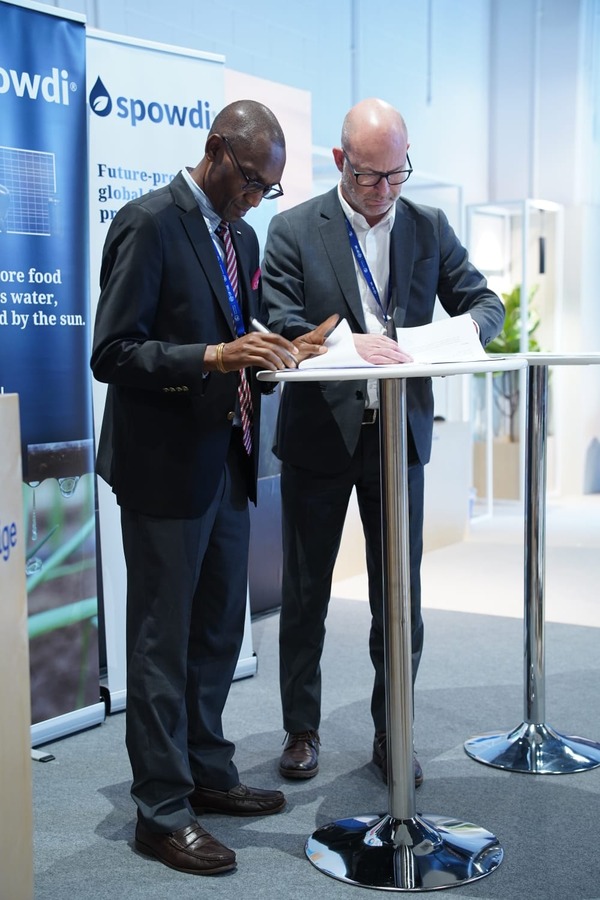Kenya has been identified to lead the rollout of smart farming technology in Africa being championed by Spowdi, a Swedish green innovation organization.
Collaborating with ChildFund International, Spowdi aims to advance sustainable smart farming practices among smallholder farmers in Africa.
The project will commence with the launch of a pilot program dedicated to assisting 250 smallholder farmers in Migori and Nyeri counties, Kenya. This initiative will subsequently expand to encompass 10,000 farmers nationwide within the next three years.
Following the successful implementation of the initial phase, the model will be duplicated in various African countries such as Uganda, Ethiopia, Zambia, Mozambique, Guinea, Senegal, Sierra Leone, and the Gambia.
ChildFund International and Spowdi inked a three-year deal during COP28 with the aim of introducing smart farming technologies to tens of thousands of smallholder farmers. The objective is to improve food production while minimizing water usage.
Under this agreement, farmers will be provided with equipment and training in the utilization of smart irrigation technology. This includes Spowdi’s solar-powered, mobile water distribution systems, which will be employed for instruction in micro-irrigation techniques.
Spowdi and ChildFund are set to create demonstration sites, testbeds, and training hubs to benefit farmers, trainers, distributors, educators, and other collaborators.
Chege Ngugi, the Africa Regional Director for ChildFund International, emphasized that small-scale farmers play a crucial role as the foundation of food production systems.
“Regrettably, they have suffered the most from the impacts of climate change,” Ngugi said.
“Through the adoption of Spowdi’s technology, our farmers will increase food production with reduced water usage, ensuring an ample supply for both consumption and surplus for sale.”
According to Henrik Johansson, the CEO of Spowdi, the last-mile distribution technology from Spowdi has led to a 300 percent increase in food production while utilizing up to 80 percent less water. This has translated into enhanced profitability and improved livelihoods.
“The technology helps small-hold farmers to move away from fossil fuels, and reduce the time spent on the field, which can then be used for other socio-economic activities,” Johansson said.
“Importantly, it also empowers communities to be food self-sufficient.”
He urged climate finance stakeholders to provide farmers with the ‘kick start’ financing needed to become what he calls impact generators.
Data from the United Nations’ 2022 report, “The State of Food Security and Nutrition in the World,” reveals that the global count of individuals unable to afford a nutritious diet is expected to increase to nearly 3.1 billion in 2021.
The report also highlights that approximately 45 million children under the age of five experience wasting, and 149 million face stunted growth and development as a consequence of chronic malnutrition in their diets.








